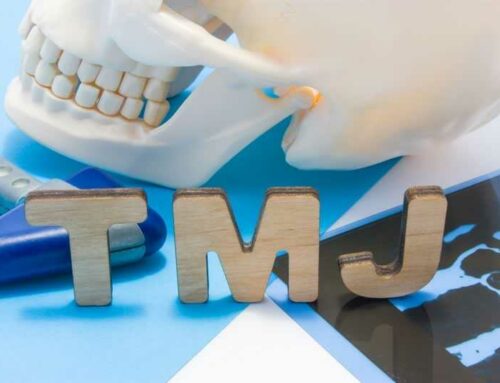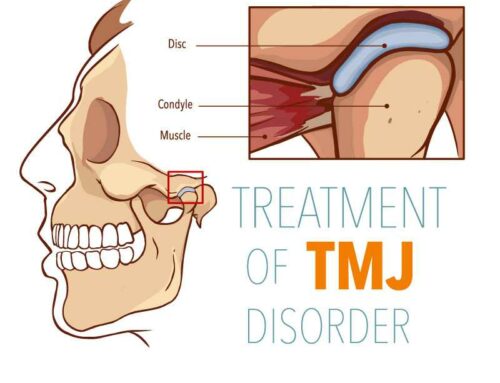Your jawbone connects to your skull at a pair of joints known as the temporomandibular joints (also known as ‘‘TMJs’), which are in front of your ears, allowing you to open and close your mouth.
With your jawbone holding your teeth and gums, your jaw may be sensitive to heat, cold or pressure, and even possible infection. There are numerous factors that may contribute to jaw pain.
TMJ Disorder
One of the most common reasons for jaw pain is a TMJ disorder (Temporomandibular). More common among women, research has shown that about one in every eight people may be affected. Symptoms of this disorder can include vision problems, dizziness, ringing in your ears, constant headaches, and pain or an ache around your ears, face or jaw.
If you suspect that you have a TMJ disorder, seek professional medical advice from a TMJ specialist. In most cases, TMJ doctors and dentists prescribe over-the-counter medication such as ibuprofen for the pain. TMJ treatment may entail doing jaw muscle exercises to strengthen and stretch them. Alternatively, prescription medication and in extreme cases even surgery may be recommended to fix the problem.
Dental Issues
Numerous issues with your teeth may be the cause of jaw pain. These can include toothache (usually due to a cavity or an abscess), sensitive teeth that are cracked, and certain gum diseases known to cause damage to your jawbone. Your dentist may recommend an x-ray to get to the root of that problem.
Trauma
If the Jaw is knocked out of place or it breaks it will cause bruising, swelling, and pain.
Medical practitioners usually prescribe medications to help with easing discomfort and pain. If the pain won’t subside or you can’t open or close your mouth, seeking further medical attention might be necessary. Specific exercises may be required to strengthen muscles and ligaments.
Joint Problems
An often over- looked component that is rather common in TMJ dysfunction is a loss of the normal curvature of the neck. If the spine has lost the normal curvature, it can put abnormal forward pressure on the joints of the jaw, causing misalignment, stress and pain. Getting a proper spinal examination is imperative if you suspect neck involvement.
In addition, if you have been diagnosed with rheumatoid arthritis, this could attack your temporomandibular joints directly. An autoimmune disease, this type of arthritis tricks your body into attacking healthy joint tissue, causing swelling. This may cause damage to the soft cartilage which encases your jaw, helping it to move smoothly.
A Heart Attack
A forewarning cause of jaw pain could also in some cases be the onset of a heart attack. The pain starts near a cluster of nerves and can be felt elsewhere in the body (in other words a referred pain).
Referred pain in the jaw could also signal joint problems.
Why come to The Head and Neck Centers of Excellence for TMJ treatment?
TMJ surgery is the last resort because of the invasiveness and still not 100% effective. Before opting for invasive surgery for jaw pain relief, consider our exclusive non-surgical A.S. Remodeling Protocol®, which is a gentle, drug-free option to TMJ problems. After a consultation, examination, and diagnostic evaluation, you will know if you qualify for our care.
By gently correcting the cervical spine, rehabilitating the muscles and ligaments of the jaw, and improving the alignment, relief and correction can be achieved.
If you or a loved one are experiencing any of these symptoms, we encourage you to contact us today to schedule an appointment with a TMJ Treatment Specialist.





